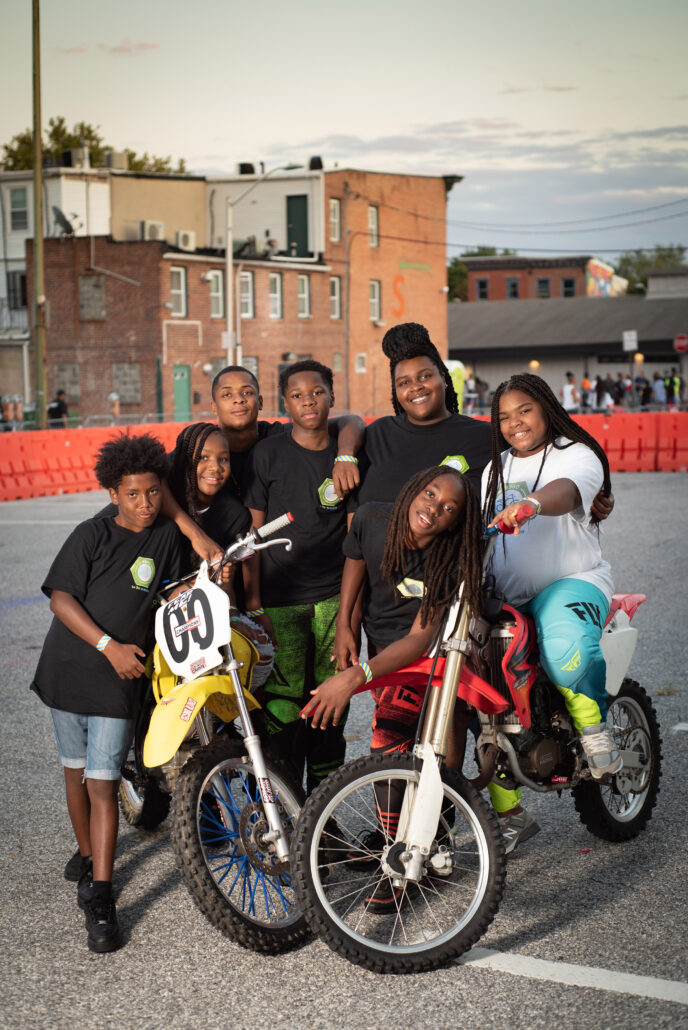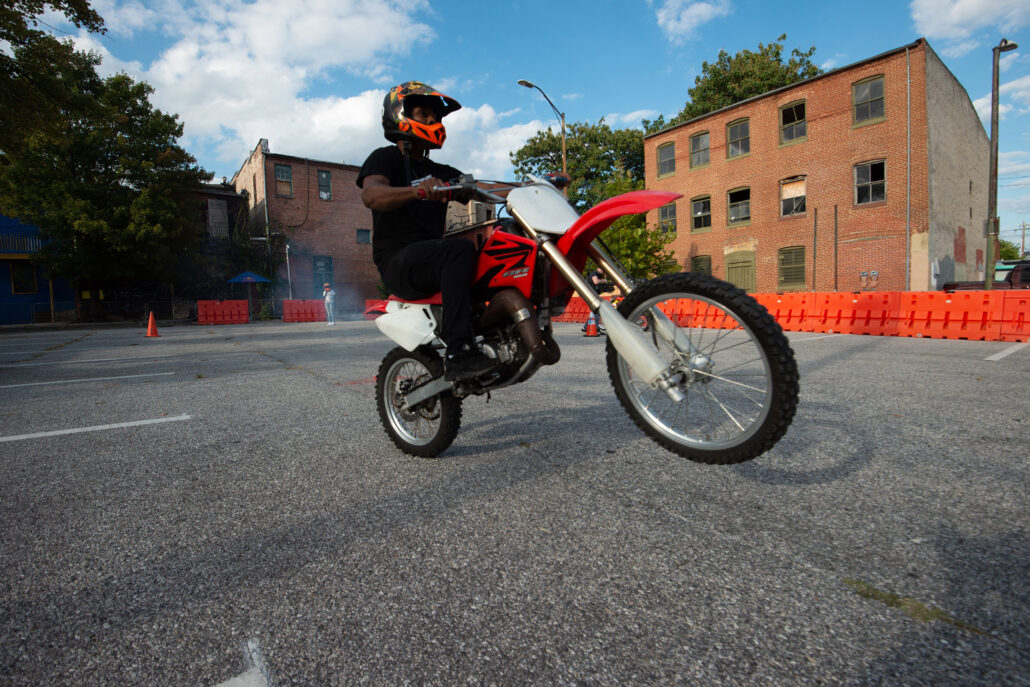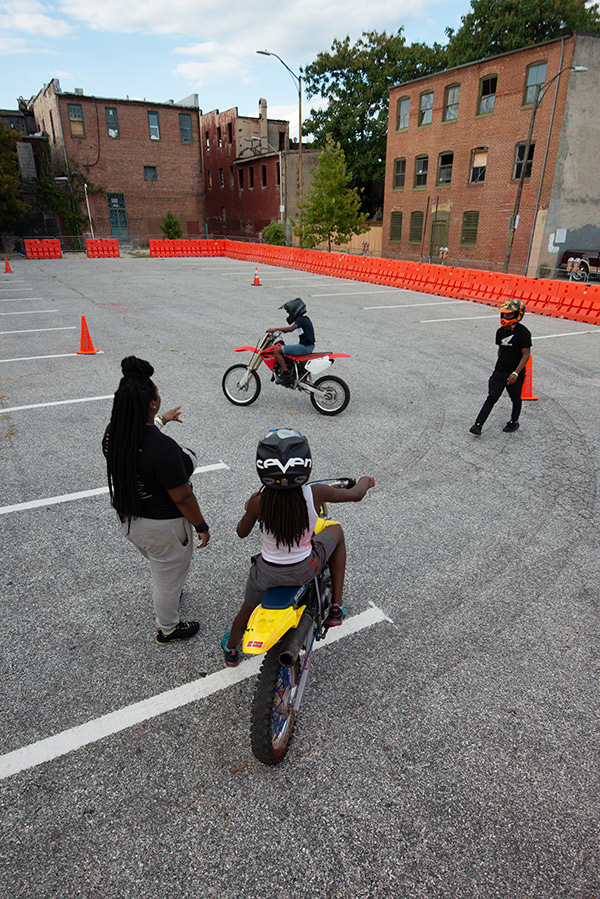AMERICAN MOTORCYCLIST December 2019
Teaching STEM with Dirt Bikes
B-360 Seeks To Change Perceptions

LEFT TO RIGHT Damon Ray, Kaiya Berry, Mike Chester, Tony Saunders, Brittany Young, Daron Harrell, Kamiya Jordon. The students are middle schoolers.
By Jim Witters
Illegal dirt bike riding has been part of the Baltimore city culture for as long as some folks there can recall.
The activity, which can slow traffic to a crawl and create dangerous situations for drivers and riders alike, has drawn the ire of some city residents and frustrated law enforcement.
The documentary “12 O’Clock Boys” drew national attention to the Baltimore riders and left much of the country with a negative impression of urban dirt bike culture.
Brittany Young grew up in that culture. And she believes she has found a way to harness the energy, passion, creativity and intelligence of the lifestyle and channel it along a path that benefits the riders and the community at large.
Her organization, B-360, teaches science, technology, engineering and mathematics to some of those once-reckless street riders, using dirt bikes to demonstrate theories and practical applications.
At the same time, B-360 is trying to create safe, legal spaces where urban youths can ride. And the organization building bridges between the riders and city government and hires some of the program graduates to train and mentor the next generation.
“We utilize the science of dirt bike engineering as the outlet for education and inspiration,” Young said. “We change people’s mindsets about who engineers are, but also who dirt bike riders are.”
Young said she aspired to be an engineer early on, but adults discouraged her because she was black and female. Only about 5 percent of U.S. engineers are black or Latino, according to government statistics.
Young attended Baltimore Polytechnic Institute and the University of Maryland, Baltimore County.

A B-360 student demonstrates his riding skills.
With friends among the illegal street riders, Young envisioned a way to allow the riders to work on their bikes, gain engineering skills, obtain sustainable careers and “bring motorcycle riding with them.”
She hopes to change the public’s perception of dirt bike riders and inspire others to become engineers. Javon Roye is B-360’s lead marketer.
“You have to believe in the people you serve,” Roye said. “They have the talent, but don’t know that it is transferrable. The idea is that we will create spaces where they can work on their bikes and spaces where it is safe and legal for them to ride.”
The students in the B-360 program learn how their motorcycles work and how to ride them safely.
B-360 is a supplement to the students’ normal school work. They visit the lab at UMBC, where they can use computers to create 3D project that they then bring to life via a 3D printer.
B-360 stages events in the community where the students display their dirt bikes, then present a riding demonstration.

Safe riding is taught to all B-360 participants.
“We work to connect riders to the community and to connect riders with the government,” Roye said. “Our goal is to bring the community together.”
Since its inception two years ago, B-360 has served about 5,000 students and has hired 20 former street-bike riders who went through the program.
The response has been positive, Roye said.
Toyota featured Young in its national Makeup2Mud campaign, which highlights female dirt bike riders in conjunction with AMA Supercross.
The program has received funding from local business people who support social change, including the Baltimore Corps’ Elevation Awards, the Johns Hopkins Social Innovation Lab and Red Bull Amaphiko Academy. Young also was selected for a national Echoing Green Fellowship.
“We have been contacted by officials from Oakland and Cleveland who are interested in adapting our program for their cities,” Roye said. “We are creating a blueprint here that we can export to help other communities.”
